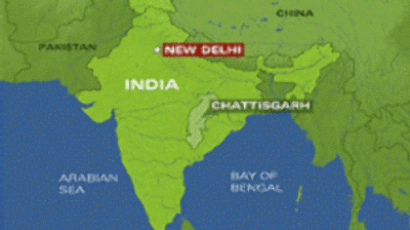Red Indians: Maoists urge anti-globalization uprising
A growing Maoist group in India is brewing a revolution that could soon spill on to the streets, urging multinational companies (MNCs) out of the country because, they say, globalization causes a widening gap between rich and poor.
For almost 25 years the Maoist rebels in India, estimated to have 10,000 armed fighters and around 50,000 supporters, have been attempting to overthrow the government in New Dehli, using violence and intimidation to turn India into a communist society.In some parts of the country their tactics have worked, creating a so-called “red corridor” in areas where traditional law and order is almost nonexistent.In their eyes the government is not taking any interest in the indigenous people of rural India and has actually displaced the population from its mineral-rich land for development projects. The government has called the Maoists the single biggest security threat to India and has held them responsible for displacing and killing thousands of civilians.But far from the jungles of India a new Maoist revolution is springing up, largely focused on overthrowing multinational companies and development.The Maoists argue that the arrival of multinational companies in India has actually caused a further divide between rich and poor. They want to see an India without the presence of “dominant Western companies,” where everyone has access to basic rights. The brains behind this uprising is Varavara Rao. The highly-educated man is, in most senses, the opposite of his counterparts in the jungle, though he served eight years in prison for anti-government activities.Armed with a pen and paper and sitting in his relatively modern flat in Hyderabad, Rao is seen as the intellectual leader of the Maoists and a voice for a growing group of Indians against globalization.“If the investment is from outside, we will kick them away and occupy them. Today the Indian government itself has become a big real estate agent for big companies and multinational companies,” claims Varavara Rao.Hyderabad is a symbol for many Indians of the country’s booming economy and presence on the global stage. The city has the biggest Microsoft research and development office outside the United States and is home to several major multinational groups, IT firms and biopharmaceutical companies. For many in the city, the presence of foreign firms is welcomed. “They are providing us job opportunities. We are educated here with a lot of talent, so that talent is used by the MNC’s, but if they don’t use the talent then that’s wasted,” a young man told RT.“They are providing different applications for our needs like supermarkets, ATMS,” echoes another.“Because of corporate companies educated people are getting more jobs. They can earn more money within short period of time with dignity,” explains a third.But the Maoists are not convinced that modernization means a better quality of life for everyone.Maoist leader Venugopal believes that “Those who did not get the fruits of this globalization even they got frustrated, they tend to get frustrated and one day if their genuine grievances are not addressed they will fight it out. Will throw all of us out including us middle class who are sitting idle.”While most Indians are not convinced that communism is the answer, many agree that India needs to find a way to improve on its own. “I, as a patriot, think that India has such a huge resource of minerals, water wealth, land power, science and technology establishment, human resources that we can produce anything. We don’t need MNC’s, it is MNC’s who need India,” Venugopal concludes.While they watch the uprisings around the Arab world, they believe it is the subcontinent’s turn to demand change.













